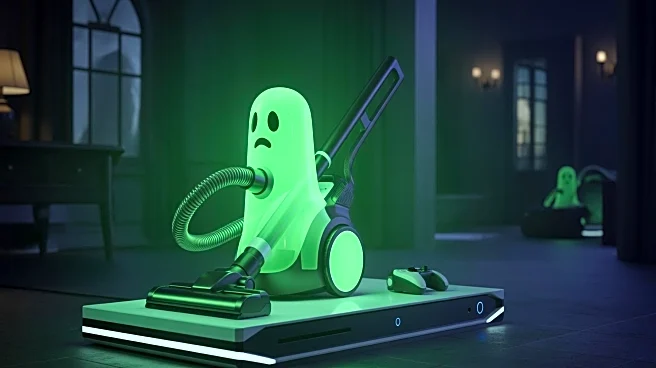What's Happening?
Nintendo has announced that the original Luigi's Mansion game will be available on the Nintendo Switch 2 starting October 30, coinciding with Halloween. This addition is part of the GameCube library accessible through the Nintendo Switch Online + Expansion
Pack service, which costs $50 annually. The basic subscription, priced at $20 per year, does not include access to GameCube, Nintendo 64, and Game Boy Advance classics. Luigi's Mansion, initially released in 2001 as a GameCube launch title, follows Luigi as he navigates a haunted mansion, capturing ghosts and solving puzzles. The game was a commercial success, selling 257,000 units in its first week and becoming the top-selling GameCube launch title.
Why It's Important?
The inclusion of Luigi's Mansion in the Switch 2's GameCube library highlights Nintendo's strategy to leverage nostalgia and expand its subscription service offerings. This move could attract both new players and long-time fans of the franchise, potentially boosting subscription numbers for the Nintendo Switch Online + Expansion Pack. By making classic titles available on modern consoles, Nintendo strengthens its market position and enhances the value proposition of its subscription services. This could lead to increased revenue and a more engaged user base, as players seek to experience beloved games on updated platforms.
What's Next?
With the entire Luigi's Mansion series now playable on the Switch 2, Nintendo may continue to expand its library of classic games, offering more titles from the GameCube era. This could prompt other gaming companies to follow suit, enhancing their own subscription services with retro content. Additionally, Nintendo might explore further enhancements to its online services, potentially introducing new features or pricing tiers to accommodate growing demand. The gaming community will likely respond positively, with increased interest in subscription-based access to classic games.
Beyond the Headlines
The decision to bring Luigi's Mansion to the Switch 2 reflects broader trends in the gaming industry, where companies are increasingly focusing on digital distribution and subscription models. This shift could influence how games are developed and marketed, with a greater emphasis on long-term engagement and content accessibility. Furthermore, the revival of classic games may spark discussions about game preservation and the cultural significance of video game history, as players revisit iconic titles from past generations.















